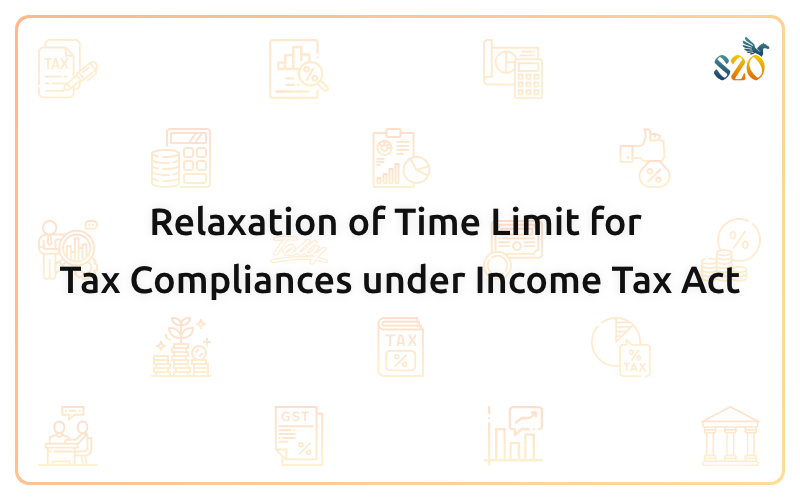Every person who dreams to earn millions faces taxes, companies plan elaborately to handle taxes, a common person goes through millions of web pages to understand taxes, but even after all of this, Tax is an elusive topic. For some taxes are a necessary evil for others a sign of equal treatment, but what is important is understanding taxes. These are the reasons why being a tax expert is so sought after.
Having the skills to understand an elusive topic like taxes, can take you to higher places in life. From small businesses to large MNCs, everybody is filing taxes. As a tax expert, your role will be to hold your client’s hands and teach them to maneuver the “tax world”.
You will also play a middle man role between tax authorities and your client when they prepare their tax papers. Being proficient in the tax laws of your country is essential to succeeding in this role. You will be studying lots of calculations, various rules and regulations, and the various schemes the country offers to taxpayers. Your primary task will be to measure taxes, inform your client of rules and regulations and coordinate with tax authorities.
Like any other profession, becoming a tax expert is not the result of reading a few blogs, but a quest for understanding. You will have to pursue professional courses from a recognized University along with nurturing a few key skills that we shall discuss later.
Courses To Swear By!
Ideally after your higher secondary your quest to become a tax expert starts. You will have to complete your undergraduate first and then pursue a post-graduation in taxation. There is a second path too that can be pursued after graduation. Let us have a closer look at what you should be doing;
- Under Graduation
Once you have completed your higher secondary, look for undergraduate programs related to taxation. Finding a bachelor’s course that offers specialization in taxation might be difficult. You can go for other related fields that you will need to become a successful tax expert, like taxation courses in Ahmedabad.
Pursuing your bachelor’s from a reputed institute is also preferable. Choose carefully the institute to pursue a bachelor’s degree, as it will be the base to you becoming a good tax expert. Exposure and quality are the important factors while choosing an institute and not an advertisement.
- Post Graduation
The ideal choice after graduation is to pursue post-graduation. In this step, you set yourself for success as a tax expert. Your post-graduation should be in taxation. It will give you all the information you need on how the tax world functions. Keep in mind to get as much exposure to the real-world scenario as possible. An internship under a tax expert will set you up perfectly for your tax expert journey. Again, a reputed institute is advisable, but exposure and quality of education are key factors. - Chartered Accountant
If you want to become a tax expert. Chartered accountancy course is most preferable course in India. The course includes in-depth knowledge of direct as well as indirect taxation. The course offers you to become expert in the field of taxation.
There is also compulsory internship requirement. You have to undergo with 3 yeas training under qualified chartered accountant so that you will get the practical exposure to the taxation and accounting. If you are not getting the work related to taxation in the internship you can also prefer to join taxation course in Ahmedabad.
Additional Skills To Add On!
So you have the required qualifications, but without skills, you will not be able to find employers. Let us see some essential skills that a tax expert must possess to become successful.
- Leadership
As a tax expert, you will be in charge of the entire taxes of a huge MNC or a billionaire client. You must have the leadership skills to maneuver challenges and issues that your clients face during their filing of taxes. You might also be required to lead other departments and guide them through the process of tax filings. Thus, a tax expert who can lead from the front and find solutions to problems is bound to succeed. - Up to Date
The Legislature is always alive coming up with new tax regimes to better fit the society. A tax expert must have the skills to keep up to date with all these changes. A habit of reading newspapers, participating in discussions, seminars, etc. are a few ways to develop these skills. The client is only as aware as the tax expert handling them. Being up to date is crucial for a tax expert to make sure their clients can steer clear of fines and sanctions. - Technical expertise and exposure
As a tax expert, if you have early exposure to the tax world you will benefit a lot. An internship or a project that you were a part of during your education can help build the expertise needed to succeed. The world of taxes can get complicated with different sectors of the market subject to variable tax regulations. Technical proficiency is a must to understand and find out faulty metrics and partially informed tax filings. Having said that, there are many elite coaching institutes that provide taxation training in Ahmedabad that you could benefit from. Consider checking them out.
Conclusion
Taxes are a tool deployed by the government to support the development of the country. As a tax expert, you have to make sure that your client pays their taxes without any hassle. You will essentially be the bridge between the government and the client. People might say that taxes are unnecessary, but you must know better. You will also have to be clear and educative with clients and help them better understand the tax regime. A tax expert must be abreast of all the changes in the tax regimes. They must also have the proficiency to deal with mishaps and the composure to work with teams. At the end of the day, a tax expert has to be the one who can see right through the elusiveness of the “Tax World”












